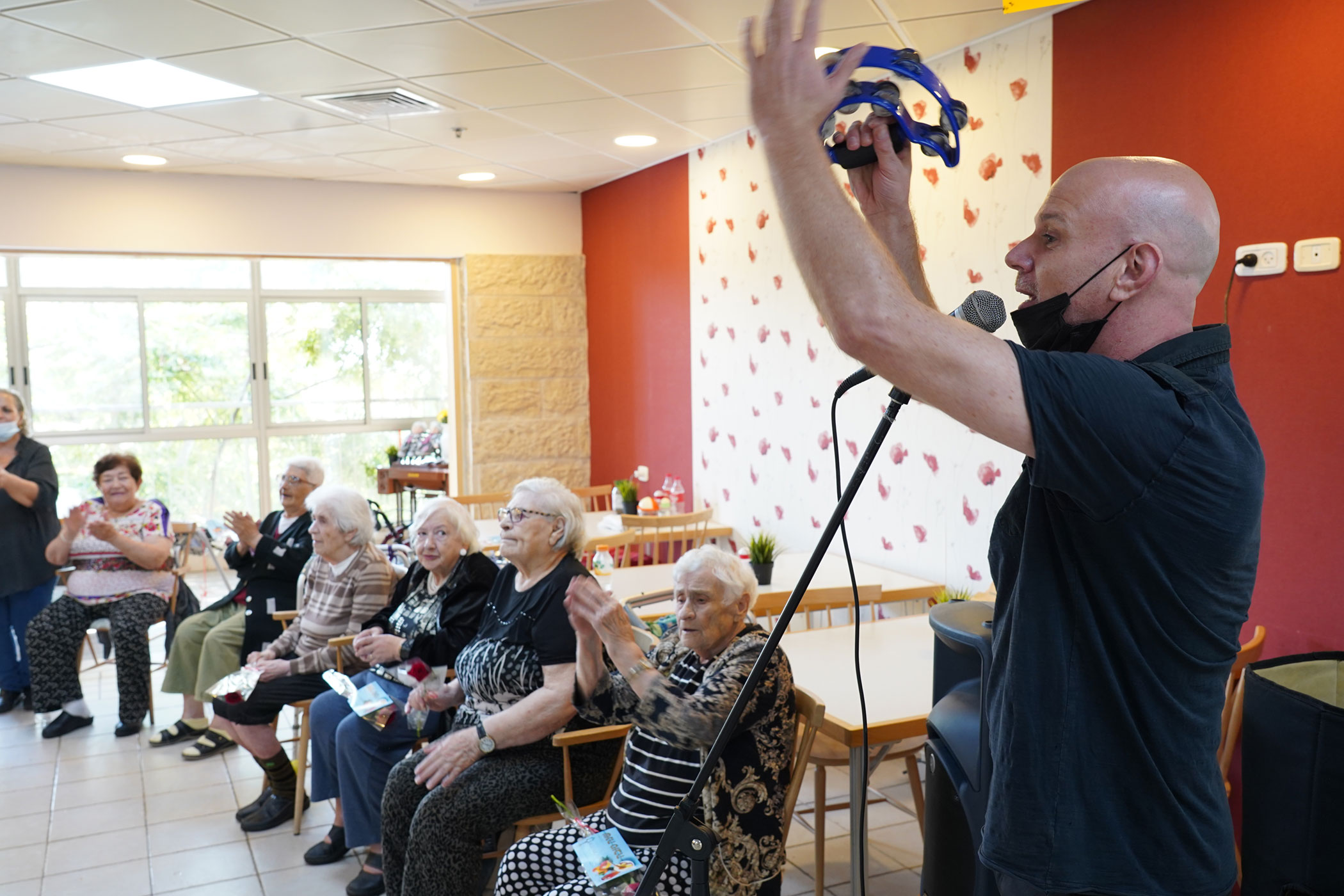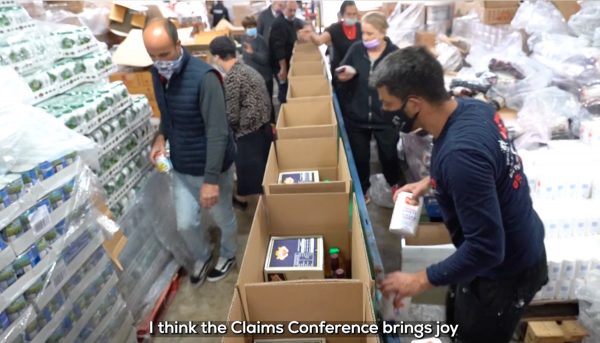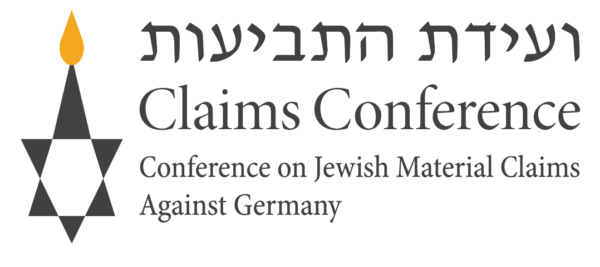Israel

The largest concentration of Jewish victims of Nazism in the world reside in Israel. One-third of all elderly in Israel are Holocaust victims. These circumstances, along with extensive cooperation with the Israeli government, give the Claims Conference a role in Israel that is unique among all the countries in which it operates.
The Claims Conference provides a wider range of services in Israel than anyplace else. Since 1995, the organization has been the primary body in Israel developing specialized care for elderly victims of Nazism.
Vaccinating Survivors in Israel
Claims Conference funds and initiatives have spurred a recognition and support network for the special needs of survivors, revolutionized geriatric care in Israel, and provided more dignified and modernized care for elderly Nazi victims.
In Israel, the Claims Conference works closely with the government and national agencies to distribute compensation payments, provide information about available programs and benefits, and support institutions and organizations that care for elderly Nazi victims.
Direct compensation payments are made from the Article 2 Fund and the Hardship Fund. The Claims Conference negotiates on an ongoing basis with the German government to include additional Nazi victims in compensation programs, increase payments, and provide increased funds for social services.
Priorities in Israel include:
- Providing in-home services to supplement state-funded care in order to allow Nazi victims to remain in their own homes whenever possible.
- Supporting initiatives such as Nazi victim participation in “supportive communities” and senior day centers that assist Nazi victims remaining in their own homes.
- Building, renovating, expanding, and improving facilities caring for elderly Nazi victims in Israel, such as nursing homes, day centers, hospital wings, kibbutz nursing homes, and sheltered housing.
- Providing dignified, specialized institutional care for those Nazi victims requiring such care.
- Identifying and addressing special issues involved in providing care for Nazi victims that differ from caring for other elderly.
- Identifying and addressing needs of Nazi victims in conflict zones, such as physically reinforcing institutions like hospitals, day centers, and nursing homes and providing psychological and other support to traumatized Nazi victims.
- Working with the Israeli government to identify potential recipients of compensation payments.
- Conducting continuing outreach and dissemination of information to inform Nazi victims of the rights and benefits to which they are entitled.
Claims Conference grants in Israel are designed to assist Nazi victims in the full range of circumstances and all stages of health and need. Some elderly might avail themselves of only psychological counseling and day centers, because they are able to travel and care for themselves at home. Others may fall ill or require surgery and rehabilitation, availing themselves of hospital facilities partly funded by Claims Conference grants. Those who are too frail to fully care for themselves at home are provided with supplemental homecare, while Nazi victims unable to remain in their own homes are able to live in comfort and dignity in Claims Conference-funded institutional settings. The Claims Conference supports the building and/or renovation of facilities that assist elderly Nazi victims such as nursing homes, geriatric-related hospital wards, sheltered housing, day centers, and soup kitchens. The Claims Conference funds these projects only in Israel, and has been a major contributor to raising the standards of living and care for victims of Nazism in these institutions. Claims Conference funding of capital projects, such as old-age home renovations, is undertaken in conjunction with the Ministry of Health, Ministry of Welfare, Ministry of Finance, National Insurance Institute, Eshel, and representatives of Nazi victims.
Major Issues
Enabling Nazi Victims in Need to Remain in Their Homes
The largest portion by far of Claims Conference grants in Israel is used to enable Nazi victims to remain in their own homes for as long as possible. Being uprooted from familiar surroundings and living in an institutional setting may be particularly traumatic for an elderly survivor of Nazi persecution. However, many Nazi victims remaining in their homes are unable to fully financially provide for their needs, necessitating Claims Conference grants to support services they require. But the economic cost to the state is far less to care for a Nazi victim at home than in a nursing home.
The Foundation for the Benefit of Holocaust Victims in Israel
The Foundation currently receives approximately $105 million in Claims Conference funding annually. It was founded in 1995 with a Claims Conference grant and provides in-home services to approximately 22,000 Nazi victims all over Israel who are unable to fully care for themselves at home. The Claims Conference seeks to enable Nazi victims to remain living in their own homes for as long as possible through these services. Many recipients of assistance from the Foundation are disabled to the point of being unable to perform basic activities of daily living such as cooking, bathing, dressing and even using the bathroom or taking a walk outside.
Supportive Communities
The Claims Conference provides funds to subsidize membership fees for more than 8,500 needy Nazi victims in local supportive communities for the elderly, which provide emergency alert systems, home modifications, counseling, security, and socialization programs. These supportive communities are administered by Amal, the Central Association for the Elderly. In recent years, the Claims Conference has covered the entire fee for Nazi victims in the Otef Azza region, due to the conflict in Gaza.
Senior Day Center Memberships
Programs offer a range of combined health and social services designed to help prevent premature placement into long-term care facilities and ease the isolation and loneliness of old age. The centers provide personal services such as transportation, hot lunch, bathing and grooming, and laundry; physical and occupational therapy, medical care, and counseling to Nazi victims and their families; and social activities and trips. These services also provide beneficial respite to family members and caregivers, and a staff who see participants regularly and can assist with other issues should it become necessary. The Claims Conference subsidizes memberships for thousands of low-income Holocaust victims who attend one of 150 senior day centers across Israel. Significant Claims Conference funds have also been used to construct, renovate, and maintain day centers around the country.
Hunger Relief
Approximately $1.8 million is allocated to organizations providing meals and food packages to Nazi victims in need. This hunger relief also assures Nazi victims that they are remembered and cared for, including at holidays. All agencies receiving these grants from the Claims Conference are recommended by or approved by the Israeli government Ministry of Welfare.
Sheltered Housing
Certain Jewish victims of Nazism, especially many who have recently arrived in Israel from the former Soviet Union, do not have funds to purchase or rent an apartment. To assist these elderly, the Claims Conference has invested significant funds in “sheltered housing,” specially designed and built apartment units that are subsidized by the Ministry of Housing. Sheltered housing units provide special services to residents such as a “house mother” who looks after residents, social activities, emergency buttons in the apartments, and support devices in bathrooms.
Health Issues of Nazi Victims
The Claims Conference has worked extensively with health institutions throughout Israel to ensure that victims of Nazism requiring hospital care and rehabilitation receive the most up-to-date treatment and that the treatment is administered in modern, dignified facilities. Hospital units have been renovated, reducing the number of patients per room to two or three, rather than the previous five to ten, and upgraded to include the most modern equipment and treatment options. Funds are allocated to modernize the infrastructure of institutions caring for Nazi victims including the upgrading or addition of air-conditioning, sprinkler systems, and plumbing. In addition, hospitals in or near conflict zones have received Claims Conference grants to build secure treatment areas or fortify existing departments against rocket attacks. The Claims Conference also funds the use of medical equipment by Nazi victims through grants to organizations such as Yad Sarah. Additionally, Claims Conference funds have provided ambulances to transport Nazi victims needing medical care.
Institutional Care
With Claims Conference funding, dignified and attractive facilities have been built to care for Nazi victims who require the full-time assistance of resident institutions. Nursing units have been built on kibbutzim so residents do not have to leave their long-time homes and communities. Mentally disturbed victims of the Shoah now have light, airy, and modern accommodations so they may live out their last days in dignity. And nursing homes all over Israel have been built, upgraded, and expanded with Claims Conference funds.


